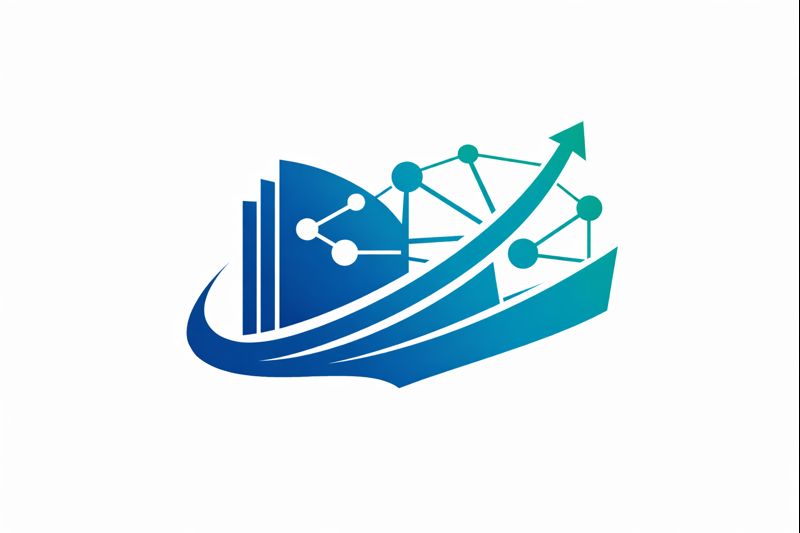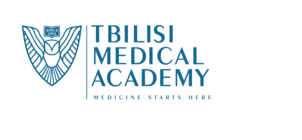We use cookies for site functionality and analytics. Non-essential cookies load only with your consent. See our
Cookie Policy and
Privacy Policy.

მარიამ ჯაში
გლობალური საპარლამენტო კავშირის UNITE აღმოსავლეთ ევროპისა და ცენტრალური აზიის რეგიონის თავმჯდომარე
თბილისის სამედიცინო აკადემიის მრჩეველთა საბჭოს თავმჯდომარე
კოვიდ-19-ის პანდემიამ, რომელმაც უკვე 5 მილიონი ადამიანის სიცოცხლე იმსხვერპლა, შეცვალა მსოფლიო. ახალი ვირუსით გამოწვეული უპრეცედენტო მასშტაბის ტრაგედია თანაბრად შეეხო როგორც ჯანდაცვის მყიფე სისტემების მქონე დაბალი და საშუალო შემოსავლის ქვეყნებს, ისე ძლიერი საბაზისო მონაცემების მქონე მდიდარ სახელმწიფოებს. ამასთანავე, პანდემიამ 150 მილიონი ადამიანი უკიდურეს სიღარიბეში ჩააგდო და შეზღუდული რესურსების მქონე ქვეყნებში მნიშვნელოვნად გააუარესა სოციალური კეთილდღეობის მაჩვენებლები.
უდიდესი ტრაგედიის ფონზე, ჩვენ მთელი მსოფლიოს მასშტაბით ვხედავდით მედიკოსებისა და პირველ ხაზზე მებრძოლი სხვა პროფესიონალების ფასდაუდებელ ძალისხმევას. სწორი მათი ყოველდღიური ბრძოლით გახდა შესაძლებელი უმნიშვნელოვანესი დროის მოგება, რომ მკვლევარებსა და ინოვატორებს შეემუშავებინათ ახალი, ეფექტური ვაქცინები.
ყველა ქვეყანას კოვიდთან ომის საკუთარი გმირები ჰყავს და ჯანდაცვის ეროვნული, რეგიონალური თუ გლობალური უწყებების თუ ინდივიდუალური პროფესიონალების წვლილის სათანადოდ შეფასება შეუძლებელია.
თუმცა, პანდემიის პირველი შოკური ეფექტის შემდეგ, ვაანალიზებთ რა მიღწეულ შედეგებსა და პრობლემებს, ვხედავთ, რომ იკვეთება მნიშნელოვანი საკითხები, რომელიც ჩვენი სამომავლო ქმედებების საფუძველი უნდა გახდეს; ქმედებების, რომელიც მოგვცემს ჯანდაცვის არსებული რეგულაციების უფრო ეფექტურად განხორციელებისა და საზოგადოებრივი ჯანდაცვის დონეზე უკეთესი შედეგის მიღწევის შესაძლებლობას.
პანდემიასთან ბრძოლის დროს გამოკვეთილი კითხვების ჩამონათვალი საკმაოდ ვრცელია, თუმცა ამ სტატიაში ყურადღებას გავამახვილებთ ჯანდაცვის გლობალური მმართველობის პერსპექტივიდან დანახულ პრობლემებზე.
სტატუს კვოს შენარჩუნება დაუშვებელია. ჯანდაცვის გლობალური მმართველობა უნდა გაძლიერდეს როგორც ჯანმრთელობის მსოფლიო ორგანიზაციის მანდატის საზღვრებში, ისე მის ფარგლებს გარეთ.
აუცილებელია ახალი, პოლიტიკურად და ფინანსურად ნეიტრალური ჯანდაცვის გლობალური ინსპექტორატის შექმნა, რომელიც უზრუნველყოფს პანდემიასთან ბრძოლის პრევენციის, მზადყოფნისა და რეაგირების ეტაპებზე ქვეყნების მიერ მიღებული ზომების მონიტორინგსა და დამოუკიდებელ შეფასებას. აღნიშნული უნდა მოიცავდეს პანდემიასთან ბრძოლის სამივე ფაზაში ჯანდაცვის საერთაშორისო რეგულაციების დაცვის, ჯანდაცვის სტატისტიკის გამჭვირვალობისა და ეროვნულ დონეზე გადაწყვეტილებების მიღების პროცესების მონიტორინგსა და ინსპექტირებას.
მსოფლიოში წამყვან სამეცნიერო ჟურნალ Lancet-ში რამდენიმე თვის წინ გამოქვეყნდა სტატია “გლობალური საზოგადოებრივი ჯანდაცვის კონვენცია 21-ე საუკუნისთვის[ https://www.thelancet.com/journals/lanpub/article/PIIS2468-2667(21)00070-0/fulltext ].“ სტატიის ავტორები - გლობალური ჯანდაცვის კონვენციის პანელის წევრები - სიღრმისეულად განიხილავენ პანდემიასთან ბრძოლის პროცესში გამოვლენილ პრობლემებს და 10 კონკრეტულ რეკომენდაციასაც გვთავაზობენ.
სტატის ავტორთა მოსაზრებებს სრულად ვეთანხმები და აქვე დამატებით აღვნიშნავ შემდეგს:
https://www.thelancet.com/journals/lanpub/article/PIIS2468-2667(21)00070-0/fulltext
გლობალური საპარლამენტო კავშირის UNITE აღმოსავლეთ ევროპისა და ცენტრალური აზიის რეგიონის თავმჯდომარე
თბილისის სამედიცინო აკადემიის მრჩეველთა საბჭოს თავმჯდომარე
კოვიდ-19-ის პანდემიამ, რომელმაც უკვე 5 მილიონი ადამიანის სიცოცხლე იმსხვერპლა, შეცვალა მსოფლიო. ახალი ვირუსით გამოწვეული უპრეცედენტო მასშტაბის ტრაგედია თანაბრად შეეხო როგორც ჯანდაცვის მყიფე სისტემების მქონე დაბალი და საშუალო შემოსავლის ქვეყნებს, ისე ძლიერი საბაზისო მონაცემების მქონე მდიდარ სახელმწიფოებს. ამასთანავე, პანდემიამ 150 მილიონი ადამიანი უკიდურეს სიღარიბეში ჩააგდო და შეზღუდული რესურსების მქონე ქვეყნებში მნიშვნელოვნად გააუარესა სოციალური კეთილდღეობის მაჩვენებლები.
უდიდესი ტრაგედიის ფონზე, ჩვენ მთელი მსოფლიოს მასშტაბით ვხედავდით მედიკოსებისა და პირველ ხაზზე მებრძოლი სხვა პროფესიონალების ფასდაუდებელ ძალისხმევას. სწორი მათი ყოველდღიური ბრძოლით გახდა შესაძლებელი უმნიშვნელოვანესი დროის მოგება, რომ მკვლევარებსა და ინოვატორებს შეემუშავებინათ ახალი, ეფექტური ვაქცინები.
ყველა ქვეყანას კოვიდთან ომის საკუთარი გმირები ჰყავს და ჯანდაცვის ეროვნული, რეგიონალური თუ გლობალური უწყებების თუ ინდივიდუალური პროფესიონალების წვლილის სათანადოდ შეფასება შეუძლებელია.
თუმცა, პანდემიის პირველი შოკური ეფექტის შემდეგ, ვაანალიზებთ რა მიღწეულ შედეგებსა და პრობლემებს, ვხედავთ, რომ იკვეთება მნიშნელოვანი საკითხები, რომელიც ჩვენი სამომავლო ქმედებების საფუძველი უნდა გახდეს; ქმედებების, რომელიც მოგვცემს ჯანდაცვის არსებული რეგულაციების უფრო ეფექტურად განხორციელებისა და საზოგადოებრივი ჯანდაცვის დონეზე უკეთესი შედეგის მიღწევის შესაძლებლობას.
პანდემიასთან ბრძოლის დროს გამოკვეთილი კითხვების ჩამონათვალი საკმაოდ ვრცელია, თუმცა ამ სტატიაში ყურადღებას გავამახვილებთ ჯანდაცვის გლობალური მმართველობის პერსპექტივიდან დანახულ პრობლემებზე.
- ჯანდაცვის საერთაშორისო რეგულაციებმა (IHR), რომელთაც უნდა განესაზღვრათ პანდემიის პრევენციული, მზადყოფნისა თუ რეაგირების ღონისძიებები, სათანადოდ ვერ იმუშავა. IHR რეგულაციების დაცვა დე ფაქტო ნებაყოფლობითი აღმოჩნდა გაეროს წევრი სახელმწიფოებისა და ჯანდაცვის ეროვნული უწყებებისთვის.
- ჯანმრთელობის მსოფლიო ორგანიზაციის (ჯანმო) და სხვა წყაროების მხრიდან ყოველდღიურად ხდებოდა COVID-19-ის ახალი შემთხვევების და ვირუსთან დაკავშირებული ავადობისა და სიკვდილიანობის მაჩვენებლების გამოქვეყნება. მაგრამ, აღნიშნული მონაცემების ხარისხი და გამჭვირვალობა კითხვის ნიშნის ქვეშ რჩებოდა არსებული ინფორმაციით რეტრო- თუ პროსპექტული ანალიზის ჩასატარებლად.
- ქვეყნებში, სადაც დემოკრატიული ინსტიტუტები ჯერ კიდევ მყიფეა, კოვიდთან ბრძოლის პროცესებში დაფიქსირდა არასათანადო პოლიტიკური გავლენები. როგორც Freedom House-ის ანგარიშში ვკითხულობთ „კორონავირუსის აფეთქების შემდეგ 80 ქვეყანაში გაუარესდა დემოკრატიისა და ადამიანის უფლებების დაცვის მაჩვენებლები“.
- ქვეყნებში პანდემიასთან დაკავშირებული შემზღუდავი ღონისძიებების თაობაზე გადაწყვეტილებების მიღების პროცესი არ იყო ყოველთვის გამჭვირვალე, მით უფრო მტკიცებულებებზე-დაფუძნებული. პანდემიასთან ბრძოლის ეროვნული საკოორდინაციო მექანიზმების მუშაობას ხელს შეუწყობდა სხვადასხვა პოლიტიკური პარტიებიდან დარგის სპეციალისტების ჩართვა. აღნიშნული ჩართულობით მიმდინარე მსჯელობებში კრიტიკული მოსაზრებების შეტანა იქნებოდა შესაძლებელი, რაც თავის მხრივ გააუმჯობესებდა პანდემიასთან დაკავშირებულ რეგულაციებზე ეროვნული დონის შეთანხმებისა და საზოგადოების მხრიდან მათი მიმღებლობის ხარისხს.
- ჯანმო განუწყვეტლივ აწვდიდა ქვეყნებს განახლებულ ინფორმაციასა და რჩევებს, თუ როგორ უნდა ემოქმედათ ახალი ვირუსის წინააღმდეგ. თუმცა, არც ეროვნულ და არც საერთაშორისო დონეზე არ არსებობდა მონიტორინგის ეფექტური მექანიზმი, რომელიც შეაფასებდა, თუ რამდენად თანმიმდევრულად მოქმედებდნენ ქვეყნები არსებული მტკიცებულებებისა და რეკომენდაციების შესაბამისად.
- პანდემიამ მნიშვნელოვანი უთანასწორობის პრობლემაც გამოავლინა ბაზისური პროფილაქტიკური საშუალებებისა და სერვისების (მაგ. ტესტირების, პირბადეების, პირადი დამცავი აღჭურვილობების) ხელმისაწვდომობის თვალსაზრისით. ღარიბ ქვეყნებში კი სასიცოცხლოდ მნიშვნელოვანი ვაქცინის მიღება მხოლოდ გლობალური ორგანიზაციების, ACT-Accelerator-ისა და COVAX პარტნიორობის ჩართულობით გახდა შესაძლებელი.
- დაბოლოს, გლობალურ დონეზე სათანადო პასუხი ვერ გაეცა მეცნიერებისა და ვაქცინაციის საწინააღმდეგო პროპაგანდას, რაც მილიონობით ადამიანის სიცოცხლის გადარჩენისა და პანდემიის უფრო ეფექტურად დამარცხების საშუალებას მოგვცემდა.
სტატუს კვოს შენარჩუნება დაუშვებელია. ჯანდაცვის გლობალური მმართველობა უნდა გაძლიერდეს როგორც ჯანმრთელობის მსოფლიო ორგანიზაციის მანდატის საზღვრებში, ისე მის ფარგლებს გარეთ.
აუცილებელია ახალი, პოლიტიკურად და ფინანსურად ნეიტრალური ჯანდაცვის გლობალური ინსპექტორატის შექმნა, რომელიც უზრუნველყოფს პანდემიასთან ბრძოლის პრევენციის, მზადყოფნისა და რეაგირების ეტაპებზე ქვეყნების მიერ მიღებული ზომების მონიტორინგსა და დამოუკიდებელ შეფასებას. აღნიშნული უნდა მოიცავდეს პანდემიასთან ბრძოლის სამივე ფაზაში ჯანდაცვის საერთაშორისო რეგულაციების დაცვის, ჯანდაცვის სტატისტიკის გამჭვირვალობისა და ეროვნულ დონეზე გადაწყვეტილებების მიღების პროცესების მონიტორინგსა და ინსპექტირებას.
მსოფლიოში წამყვან სამეცნიერო ჟურნალ Lancet-ში რამდენიმე თვის წინ გამოქვეყნდა სტატია “გლობალური საზოგადოებრივი ჯანდაცვის კონვენცია 21-ე საუკუნისთვის[ https://www.thelancet.com/journals/lanpub/article/PIIS2468-2667(21)00070-0/fulltext ].“ სტატიის ავტორები - გლობალური ჯანდაცვის კონვენციის პანელის წევრები - სიღრმისეულად განიხილავენ პანდემიასთან ბრძოლის პროცესში გამოვლენილ პრობლემებს და 10 კონკრეტულ რეკომენდაციასაც გვთავაზობენ.
სტატის ავტორთა მოსაზრებებს სრულად ვეთანხმები და აქვე დამატებით აღვნიშნავ შემდეგს:
- პანდემიასთან ბრძოლის საქმეში კრიტიკულად მნიშნელოვანი იყო და რჩება ჯანმოს, როგორც ჯანდაცვის გლობალური უწყების როლი. თუმცა ორგანიზაციის წესდებისა და რეგულაციების გათვალისწინებით, ჯანმო ვერ შეძლებს საკუთარ ბაზაზე დააფუძნოს პოლიტიკური ზეგავლენისაგან თავისუფალი ახალი ან უფრო ძლიერი მონიტორინგისა და ინსპექტირების ორგანო.
- ჯანმო-ს შეზღუდული დაფინანსება, რომლის უდიდეს ნაწილიც გაეროს წევრი სახელმწიფოების მხრიდან ირიცხება, ასევე შეუძლებელს ხდის დამოუკიდებელი მონიტორინგისა და ინსპექტირების სისტემის დაფუძნებას ორგანიზაციის ბაზაზე.
- აქვე გავიხსენოთ ვაქცინაციისა და იმუნიზაციის გლობალური ალიანსის (GAVI) და გლობალური ფონდის (The Global Fund) გამოცდილება. ორივე ორგანიზაცია დამოუკიდებელი საჯარო და კერძო თანამშრომლობითი პლატფორმებია, რომელთაც ფასდაუდებელი წვლილი შეიტანეს იმუნიზაციის, შიდსის, ტუბერკულოზისა და მალარიის საერთაშორისო პროგრამების წარმატებაში. აღნიშნული გამოცდილების გათვალისწინებით, მსოფლიოს სჭირდება ახალი, დამოუკიდებელი საჯარო და კერძო თანამშრომლობითი პლატფორმა, რომელიც უზრუნველყოფს სათანადო პოლიტიკურ მხარდაჭერასა და რესურსებს მომავალი პანდემიების პრევენციის, მზადყოფნისა და რეაგირების სისტემების გასაძლიერებლად. როგორც საქართველოს პარლამენტის ყოფილი წევრი, ჯანდაცვის მინისტრის მოადგილე და გაეროს თანამშრომელი, მოგმართავთ ჩემს კოლეგა მედიკოსებსა და პოლიტიკოსებს, რომ კრიტიკულად შევაფასოთ ჩვენს ქვეყნებში გატარებული პანდემიის საწინააღმდეგო ღონისძიებები და გავერთიანდეთ სამომავლოდ ჯანდაცვის გლობალური მმართველობის გასაძლიერებლად. აღნიშნულ პროცესში პირველი ფუნდამენტური ნაბიჯი „გლობალური საზოგადოებრივი ჯანდაცვის კონვენციის“ მხარდაჭერა და მიღება იქნება.
https://www.thelancet.com/journals/lanpub/article/PIIS2468-2667(21)00070-0/fulltext
ბოლო სიახლეები
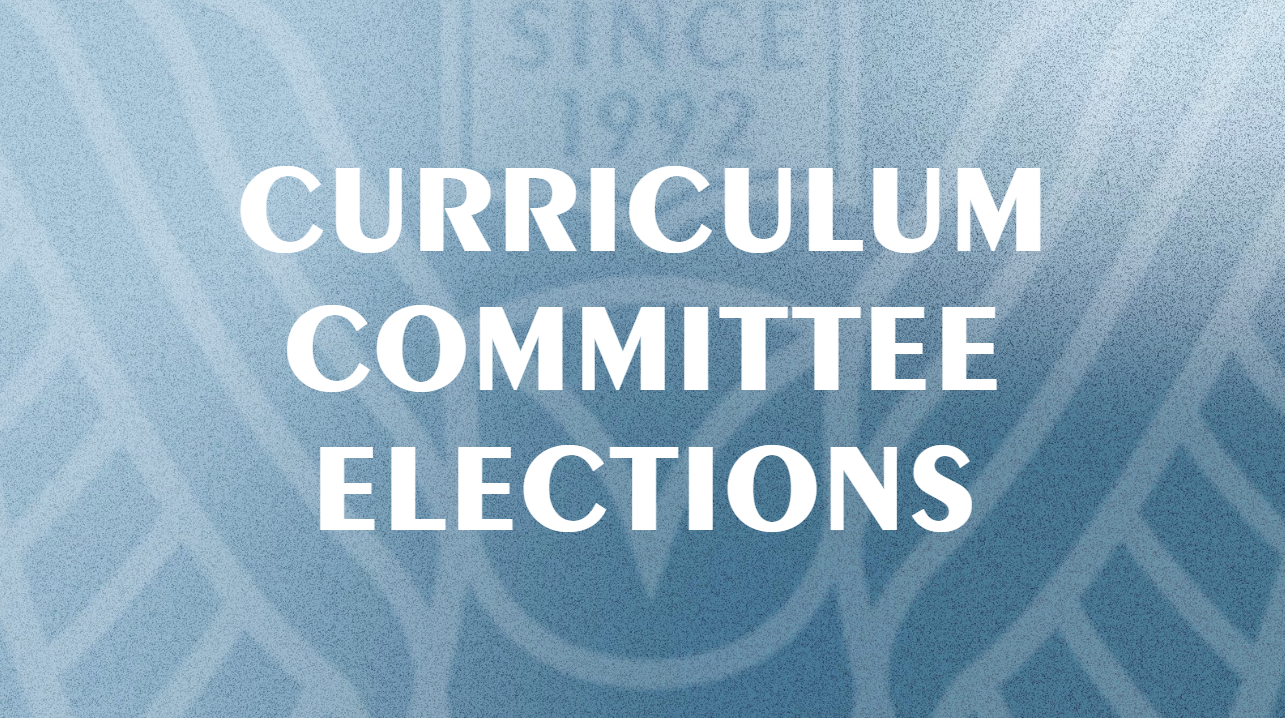
კურიკულუმის კომიტეტში სტუდენტთა წარმომადგენლების არჩევნები
🗓️ 2026-02-27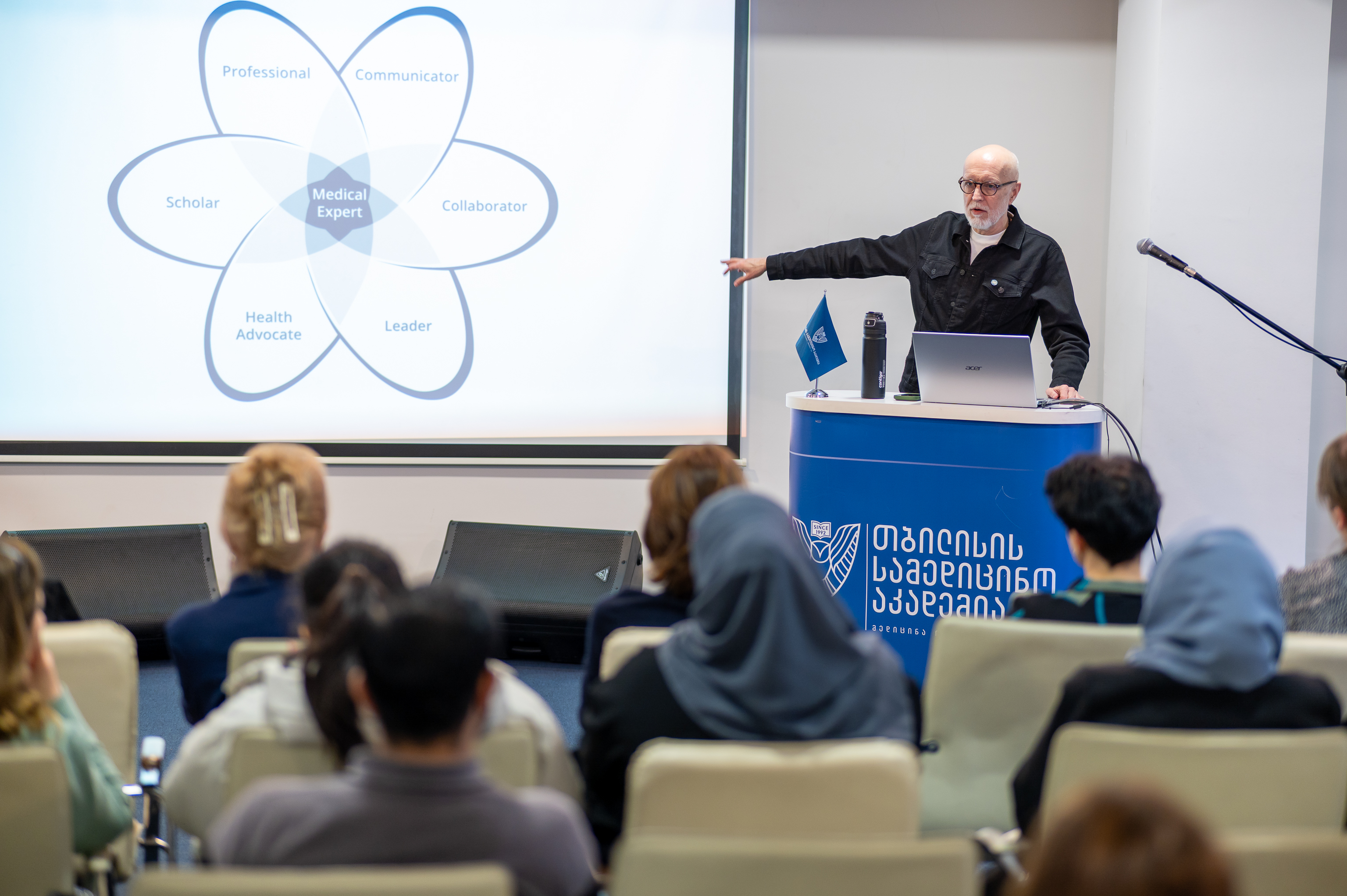
პოლონეთის დელეგაცია თსა-ში
🗓️ 2026-02-23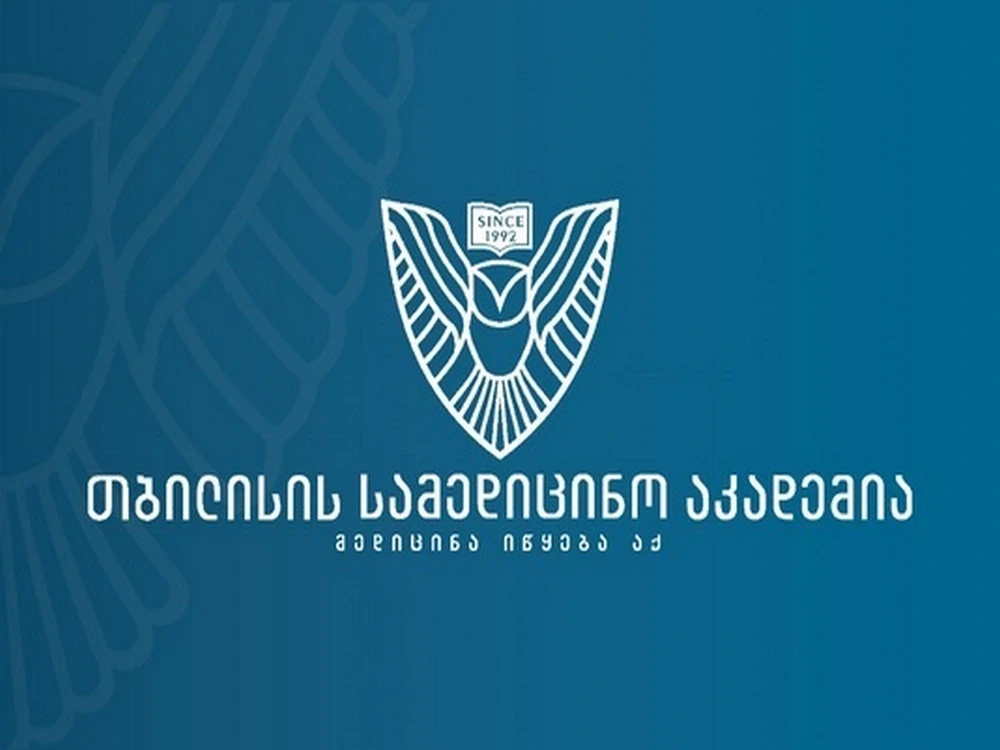
თსა-ს პერსონალის საყურადღებოდ!
🗓️ 2026-02-19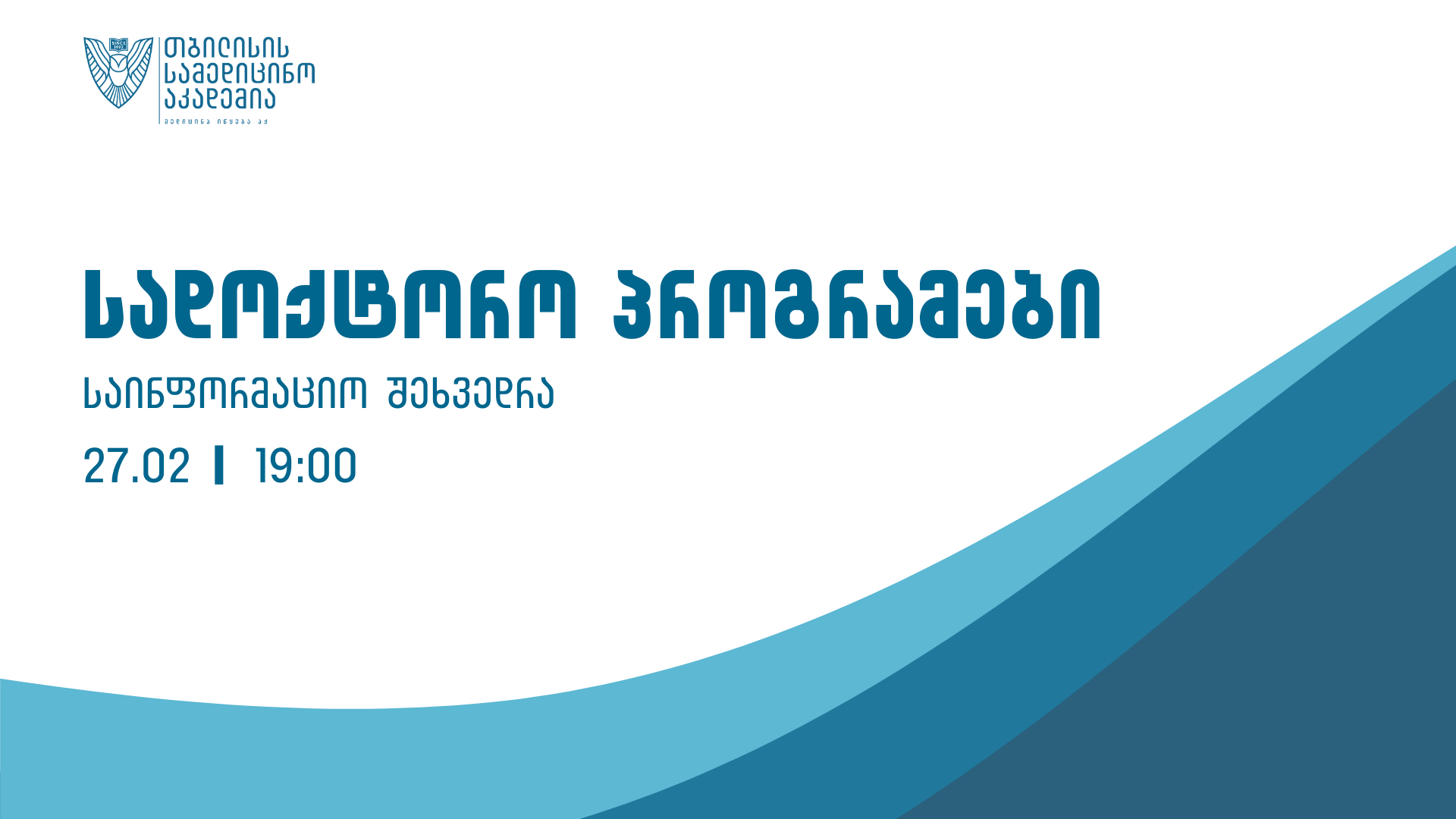
საინფორმაციო შეხვედრა - სადოქტორო განათლება თსა-ში
🗓️ 2026-02-19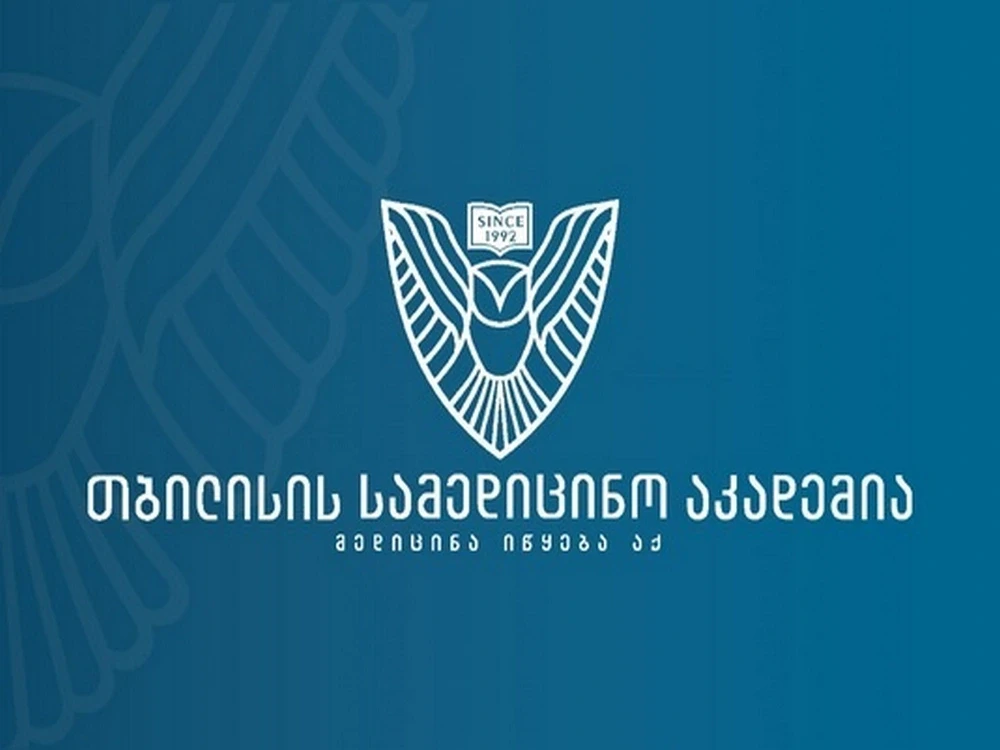
თსა-ს ადმინისტრაციული პერსონალის საყურადღებოდ!
🗓️ 2026-02-18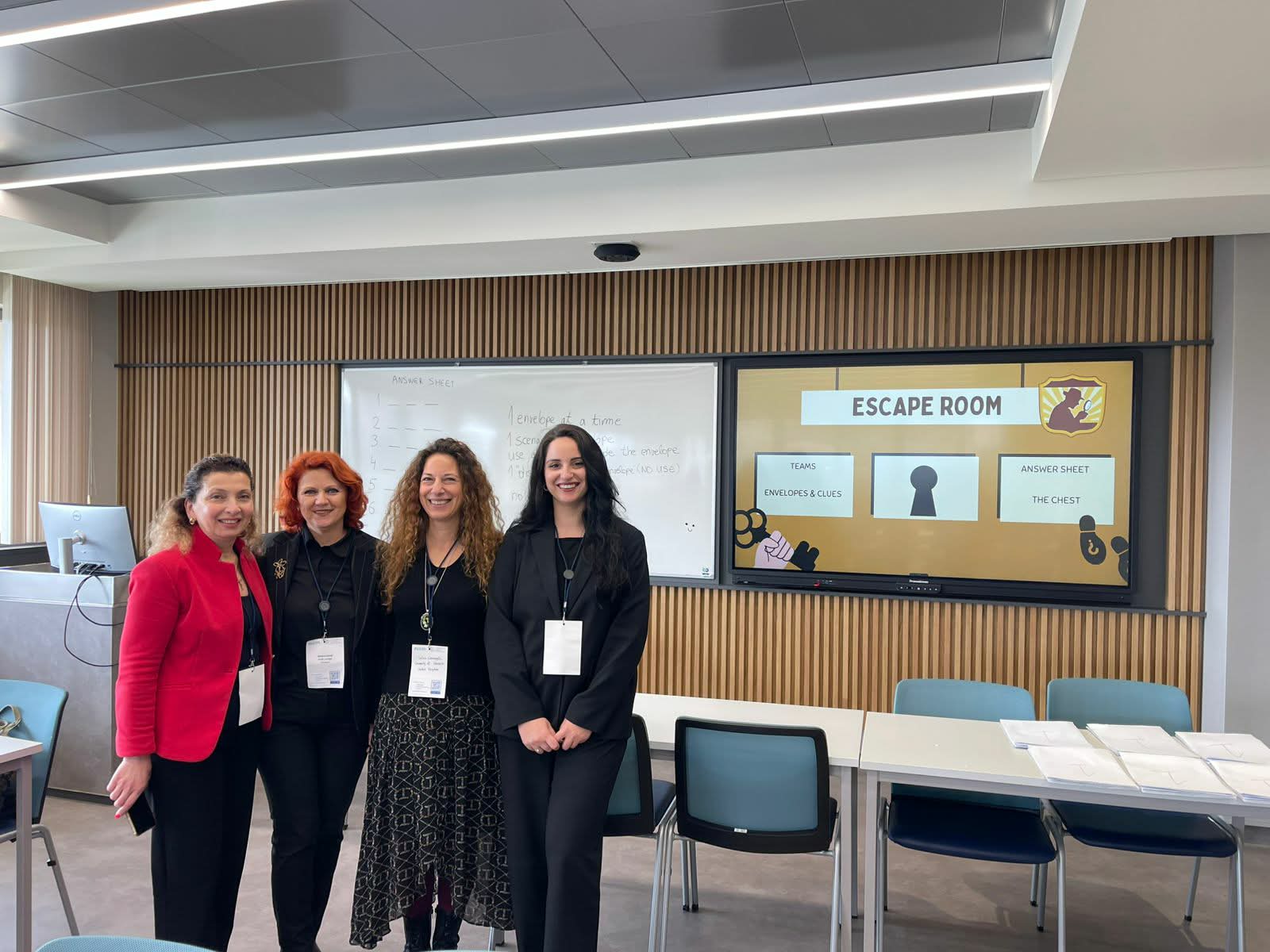
EUA-ის ყოველწლიური ფორუმი
🗓️ 2026-02-16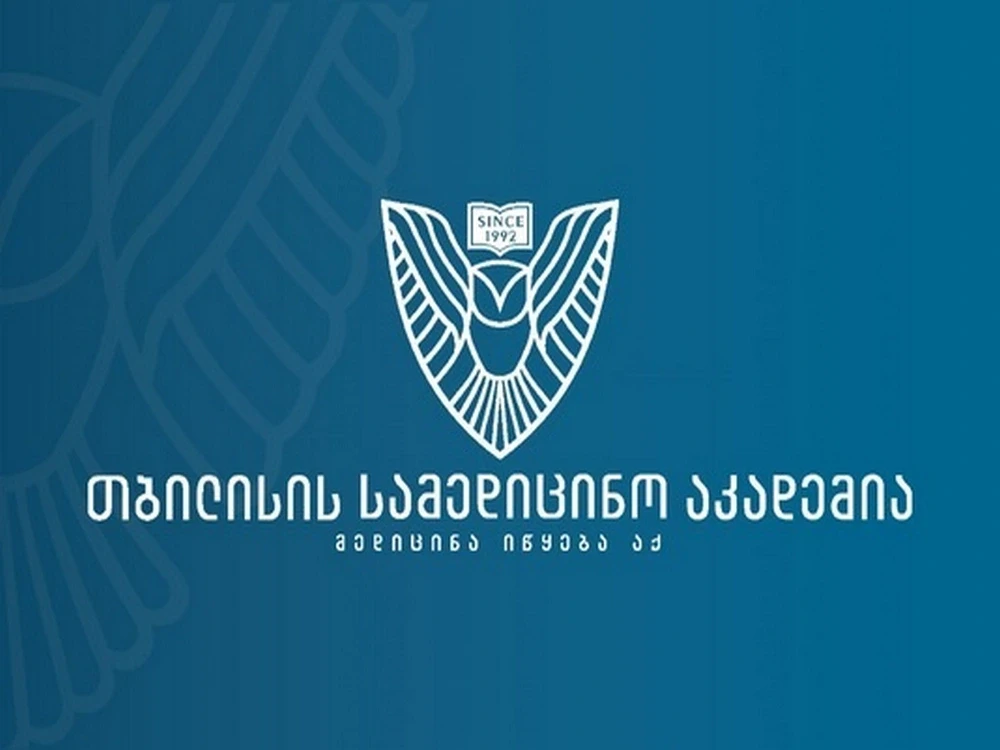
სემინარი კლინიცისტებისთვის
🗓️ 2026-02-13
შიდა მობილობა
🗓️ 2026-02-12
2025-2026 სასწავლო წლის I სემესტრის რეგლამენტი
🗓️ 2026-02-12